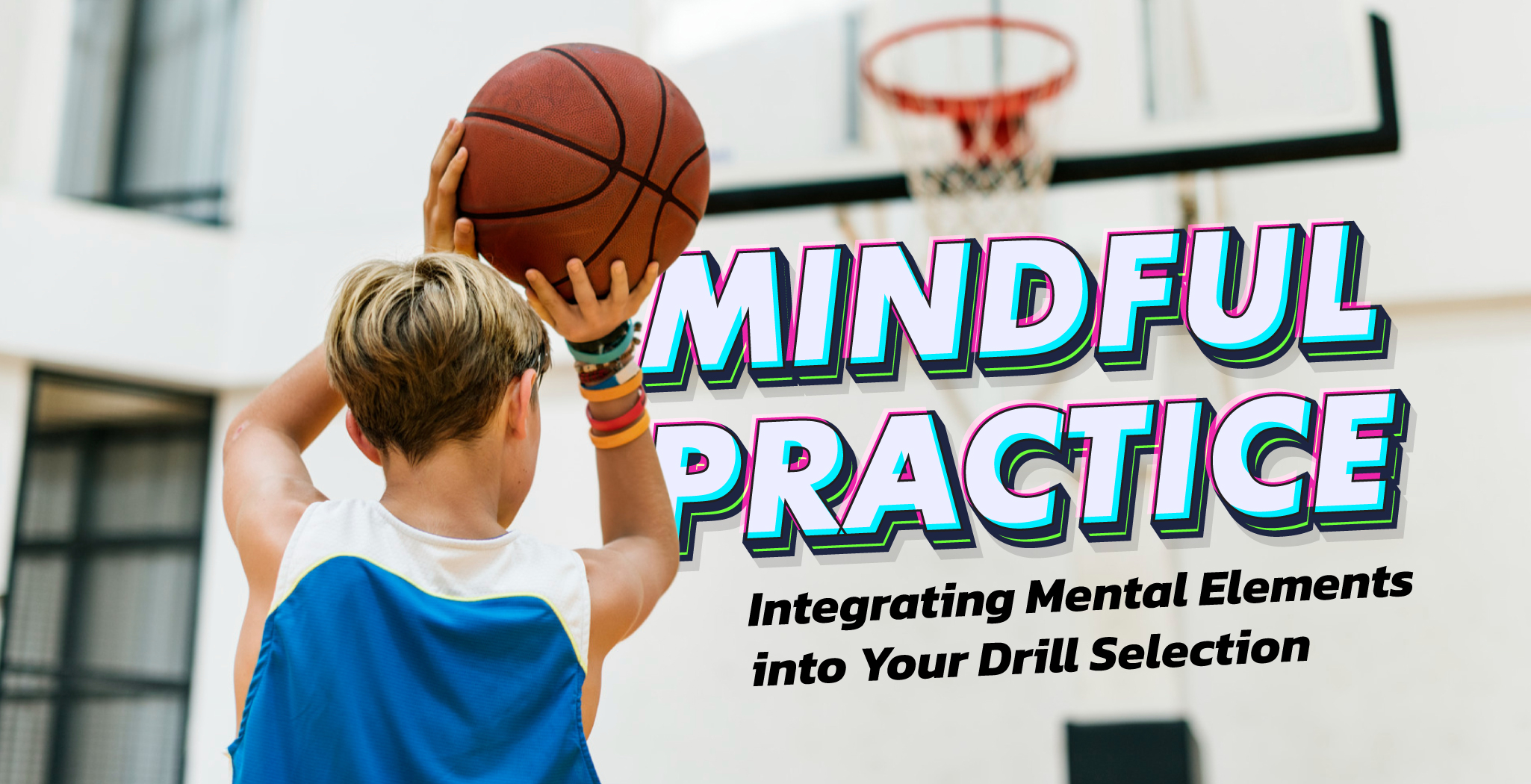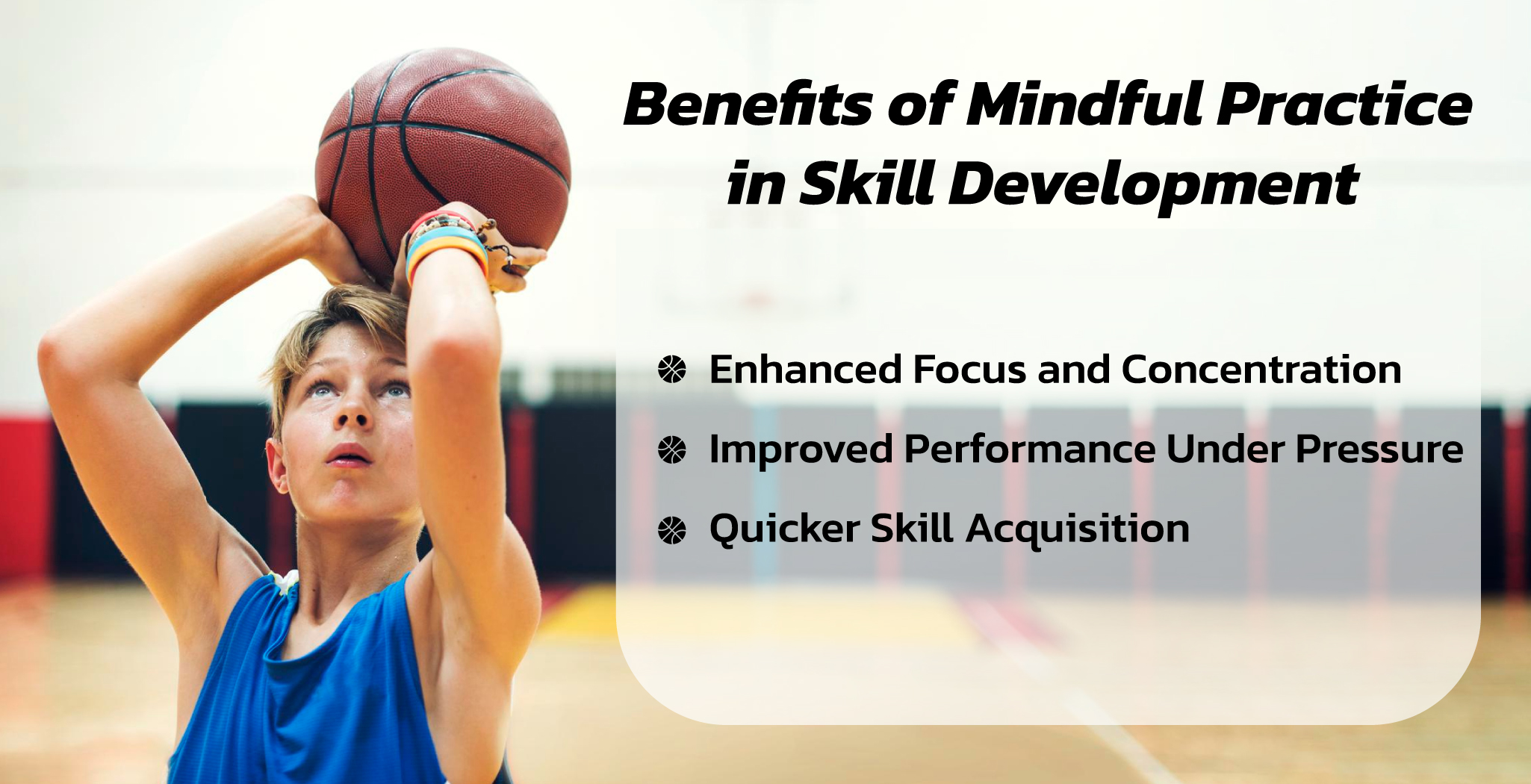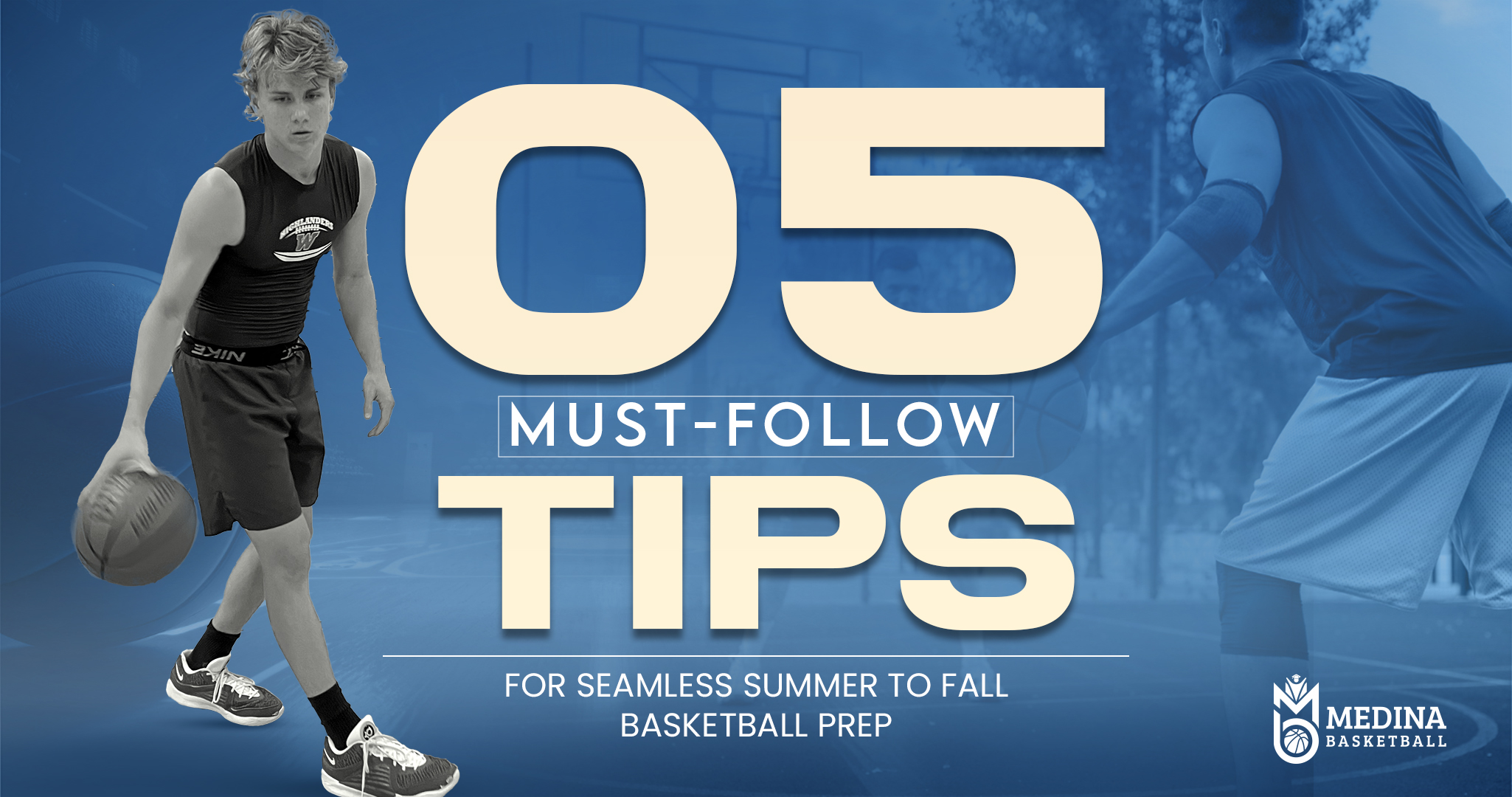Picture this: the buzzer sounds, the crowd roars, and you're on the court, ready to…

Imagine a world where the mind becomes your greatest ally in the quest for excellence. This is not just about physical development; it’s about unlocking the untapped potential within your consciousness. In sports and skill development, we often focus tirelessly on the physical aspects of training – the repetitions, the drills, the exercises. Yet, there lies a hidden treasure, an uncharted territory that, when explored, can redefine the way we approach our craft. Today, we play into the fascinating realm of mindful practice and explore the transformative impact it can have on your training routine.
Mindful practice is not a fleeting trend or a buzzword; it’s a paradigm shift that has the potential to revolutionize the way you perceive and engage with your chosen discipline. It goes beyond the confines of the gym or the playing field, seeping into the very fabric of your thoughts, reactions, and, ultimately, your performance.
Understanding Mindful Practice
Mindful practice is more than just a technique; it’s a holistic approach that integrates the mind, body, and spirit into the fabric of your training regimen. At its core, mindfulness involves cultivating a heightened awareness of the present moment, free from judgment or distraction. It’s about being fully engaged in the task at hand, whether it’s a complex drill on the field or a focused exercise in the gym.
- Present-Moment Awareness: Mindful practice encourages a conscious presence in the current moment, allowing athletes to fully immerse themselves in each movement and thought.
- Non-Judgmental Observation: Mindfulness emphasizes observing thoughts and actions without passing judgment. This non-judgmental awareness fosters a positive and growth-oriented mindset.
- Breath as an Anchor: The breath serves as a focal point in mindful practice, anchoring attention and promoting a calm and centered state of mind.
Benefits of Mindful Practice in Skill Development
The benefits of integrating mindfulness into your training routine extend far beyond the physical realm. Consider the following advantages:
- Enhanced Focus and Concentration: Mindful practice sharpens your ability to concentrate, allowing you to tune out distractions and maintain a heightened focus during drills and exercises.
- Improved Performance Under Pressure: By training the mind to stay present and composed, athletes can better navigate high-pressure situations, making crucial decisions with clarity and precision.
- Quicker Skill Acquisition: Mindfulness accelerates the learning process by promoting a deep connection between the mind and body, facilitating a more efficient acquisition of new skills.
The Connection Between Mind and Body in Training
- Mind-Body Synchronization: Mindful practice fosters a harmonious relationship between mental processes and physical actions, leading to smoother and more efficient movements.
- Emotional Regulation: Training the mind through mindfulness helps regulate emotions, preventing mental hurdles from interfering with optimal physical performance.
- Increased Body Awareness: By staying present in the moment, athletes develop a heightened sense of body awareness, allowing for more precise movements and a deeper understanding of their physical capabilities.
Choosing Appropriate Drills for Mindful Practice
Before embarking on the selection of drills for mindful practice, it’s crucial to take a personalized approach. Each athlete is unique, with distinct strengths, weaknesses, and aspirations.
- Goal Clarity: Define the specific goals you aim to achieve through mindful practice. Whether it’s improving focus, managing stress, or honing specific skills, understanding your objectives guides the selection of drills.
- Self-Assessment: Conduct a thorough self-assessment to identify areas of improvement. This introspective process helps pinpoint the mental elements that require attention, laying the foundation for targeted drills.
- Feedback Loop: Establish a feedback loop with coaches or mentors. Their insights provide an external perspective, shedding light on aspects you might overlook and informing the selection of drills that align with your overall development.
Tailoring Drills to Address Mental Elements
Incorporate drills that seamlessly integrate mindfulness into movement. For example, practice specific techniques while maintaining a heightened awareness of body sensations, breathing, and the surrounding environment.
Engage in visualization drills that enhance mental imagery. Visualizing the successful execution of skills or navigating challenges helps build confidence and reinforces positive mental patterns. Integrate mindful breathing exercises into your routine. Focusing on the breath not only promotes a calm state of mind but also enhances concentration and control during high-pressure moments.
Balancing Physical and Mental Components in Training
Incorporate short mindfulness breaks between physical drills. These brief moments of reflection allow athletes to regroup mentally, promoting sustained focus and preventing burnout. Gradually increase the complexity of drills to challenge the mind. Starting with simple mindfulness exercises and progressively incorporating them into more intricate skills ensures a gradual and sustainable integration of mental elements. Make mindful practice a consistent part of your training routine. Like physical conditioning, the mental aspects of training require regular and intentional attention to yield lasting results.
Practical Tips for Coaches and Athletes
As we delve deeper into the practical aspects of mindful practice, these tips provide a roadmap for coaches and athletes to seamlessly integrate mindfulness into their training plans and routines. The integration of mindful practice into training plans requires a thoughtful and deliberate approach. Coaches and athletes alike can benefit from incorporating the following strategies:
- Strategic Planning: Begin by strategically integrating mindful practice sessions into overall training plans. Designate specific times for mindfulness drills, aligning them with phases of training that can benefit most from enhanced mental focus.
- Individualized Approach: Recognize the diversity among athletes in terms of mental strengths and weaknesses. Tailor mindful practice elements to meet individual needs, ensuring that each athlete receives personalized attention in their mental development journey.
- Goal Alignment: Align mindful drills with overarching performance goals. Whether it’s improving decision-making under pressure or enhancing overall mental resilience, the integration of mindfulness should directly contribute to achieving desired outcomes.
Developing Mindfulness Routines
- Consistency Matters: Establish a consistent schedule for mindfulness routines. Whether it’s a brief session before training or a dedicated time each day, regularity fosters habit formation and maximizes the benefits of mindful practice.
- Start Small, Grow Gradually: Begin with short mindfulness exercises and gradually extend the duration as comfort and proficiency increase. This gradual approach ensures that athletes can build a sustainable mindfulness routine without feeling overwhelmed.
- Incorporate Rituals: Introduce rituals or cues to signal the beginning and end of mindfulness routines. This could be as simple as a specific breathing pattern, a short visualization, or a mindful movement sequence, creating a clear transition into a focused mental state.
Fostering a Mindful Training Environment
Foster an environment where athletes feel comfortable discussing their mental well-being. Encourage open communication about the challenges and successes experienced during mindful practice, promoting a sense of shared growth. Coaches play a pivotal role in setting the tone for the training environment. Demonstrate mindfulness in your own practices, emphasizing its importance and normalizing its integration into training routines. Incorporate group mindfulness activities to strengthen team dynamics. Collaborative mindfulness sessions can enhance collective focus, communication, and cohesion, contributing to a positive and supportive team culture.
In conclusion, embracing mindful practice and integrating mental elements into drill selection is a transformative approach that goes beyond the physical aspects of sports training. By recognizing the profound connection between the mind and athletic performance, individuals can unlock their full potential and achieve heightened levels of success on the court. Through this holistic approach, athletes not only enhance their skills but also cultivate mental resilience, focus, and a deeper understanding of their own capabilities.
The application of this thoughtful method of sports instruction is exemplified by Medina Basketball. Our programs surpass conventional coaching techniques by their unwavering dedication to the mental health of both athletes and students. Our coaches develop mental toughness in a nurturing atmosphere in addition to the physical talents needed for the game. We equip its players to handle the rigors of the game and life with a robust and balanced attitude by introducing stress management techniques, visualization exercises, and mindfulness practices into their training regimens. Our commitment to holistic player development serves as an inspiring model for other programs seeking to cultivate well-rounded athletes who not only excel in their sport but also carry the lessons of mindfulness and mental resilience into every facet of their lives. As athletes continue to evolve and explore new dimensions of their potential, the marriage of mindful practice and skill development remains a powerful catalyst for achieving excellence in sports and beyond.



